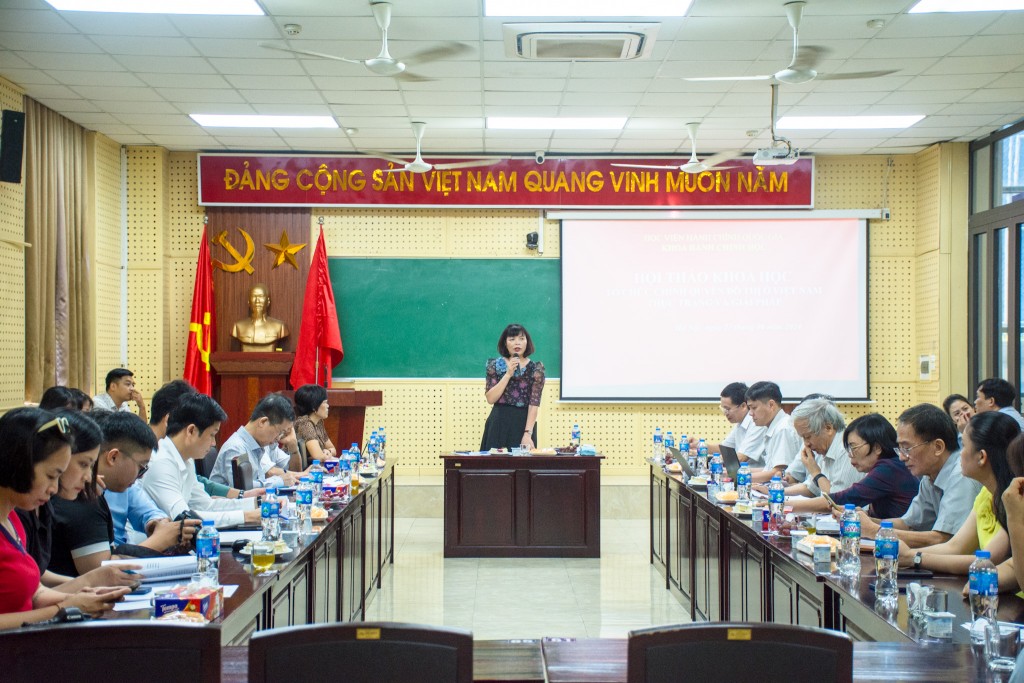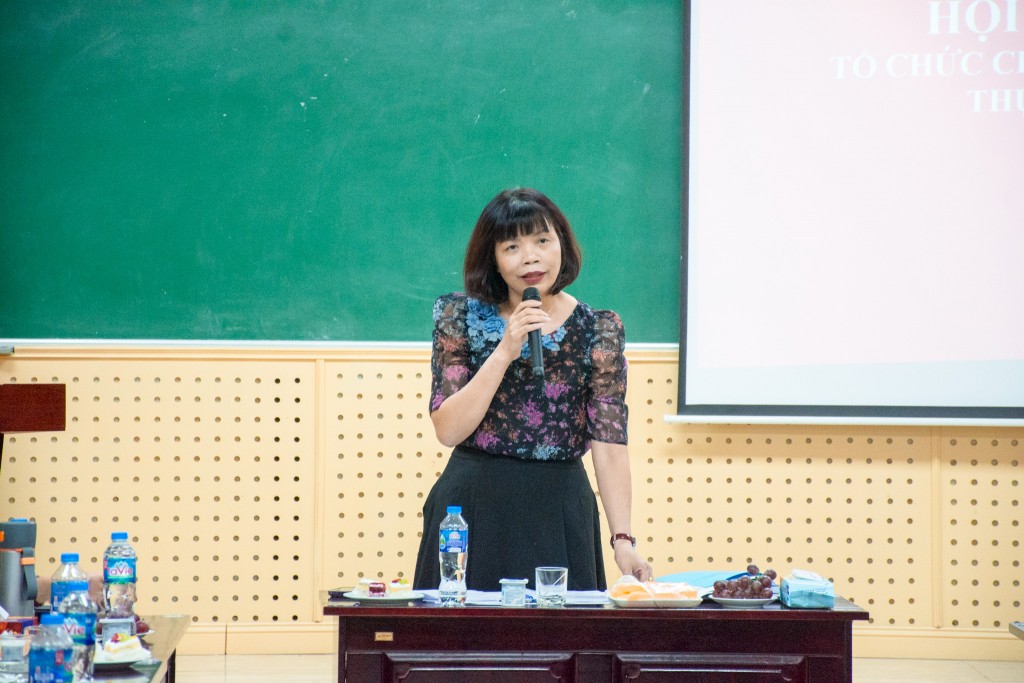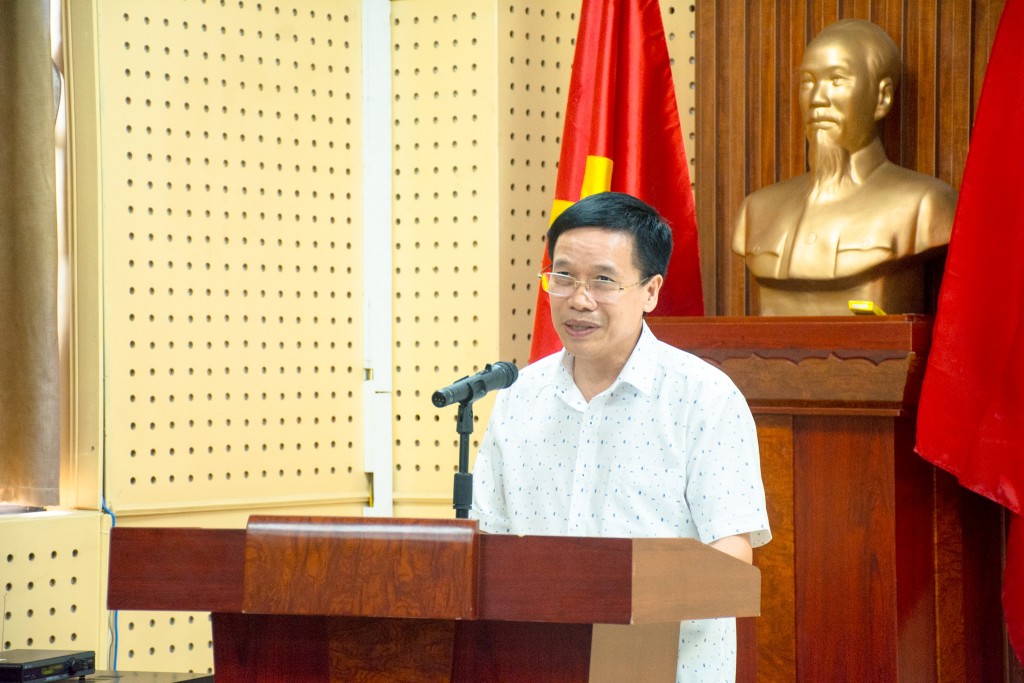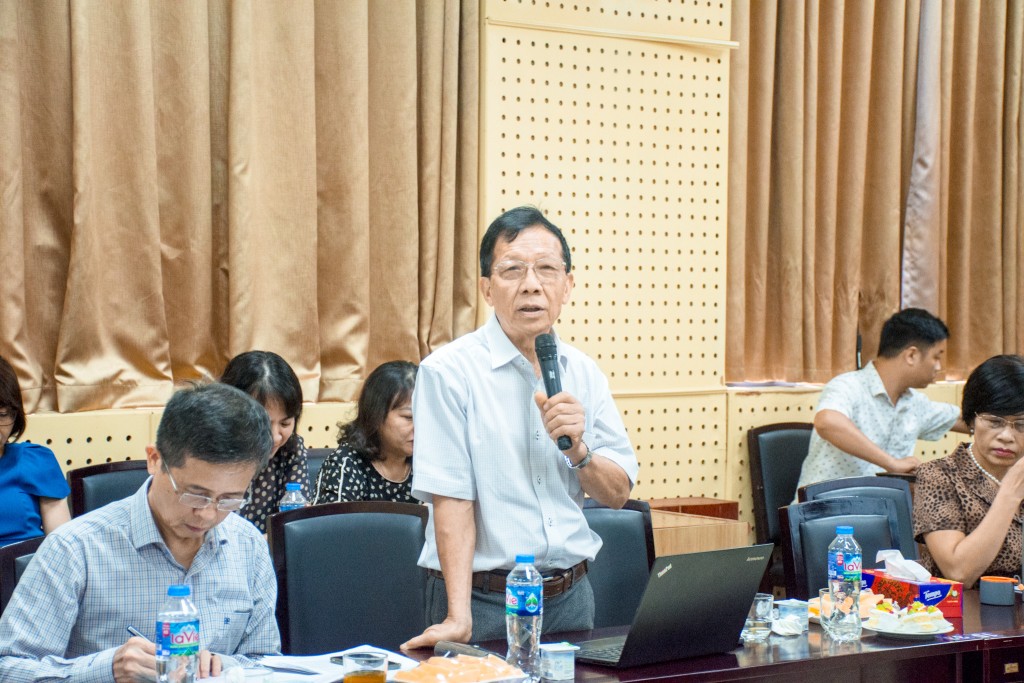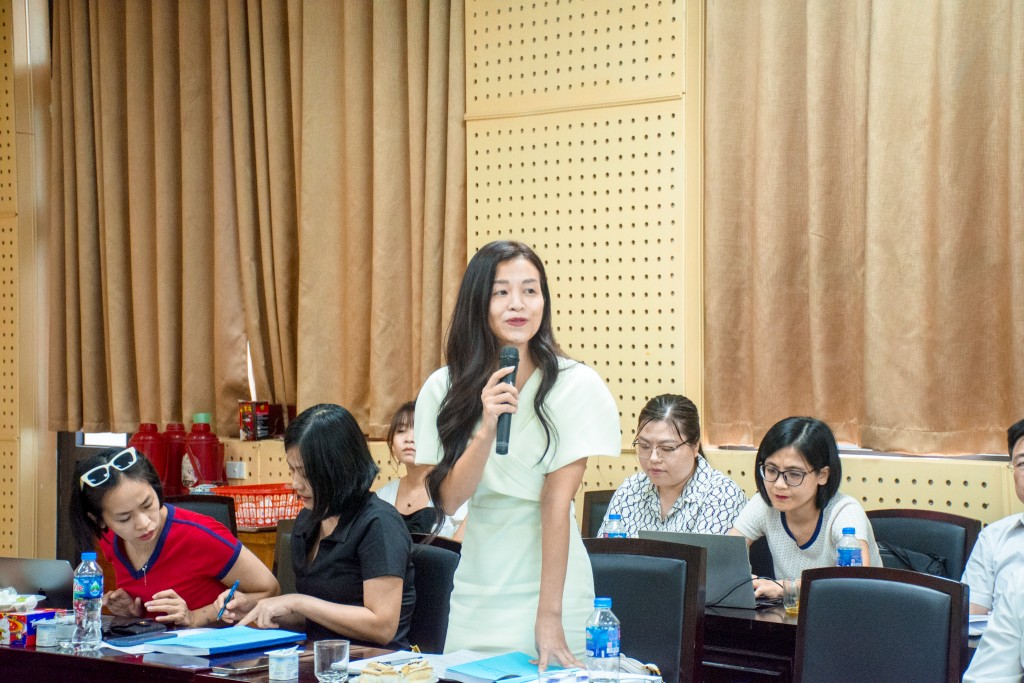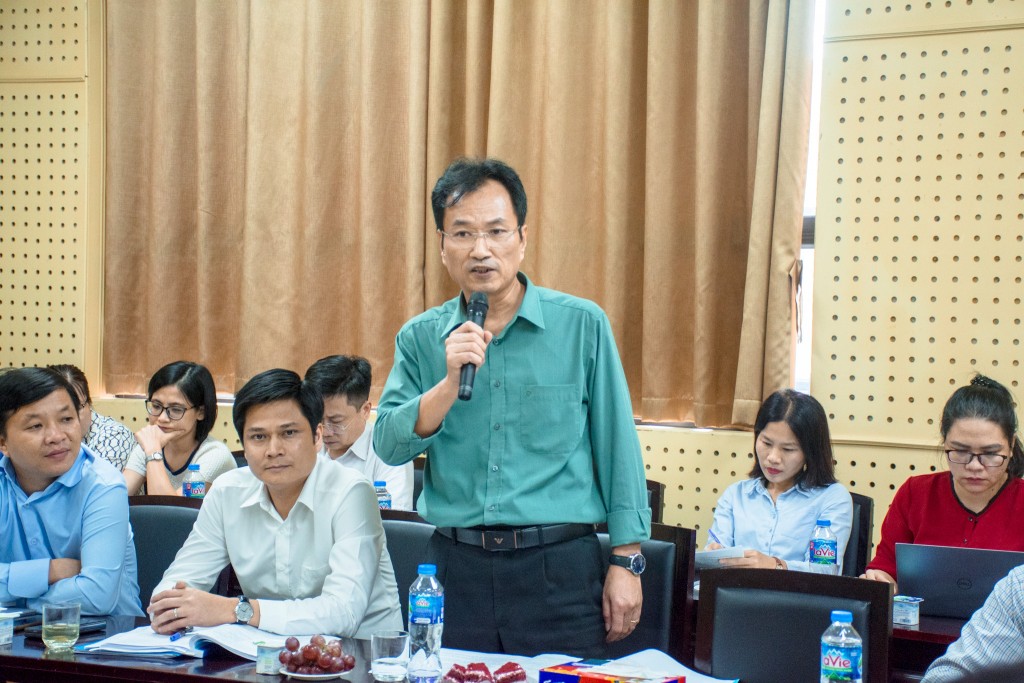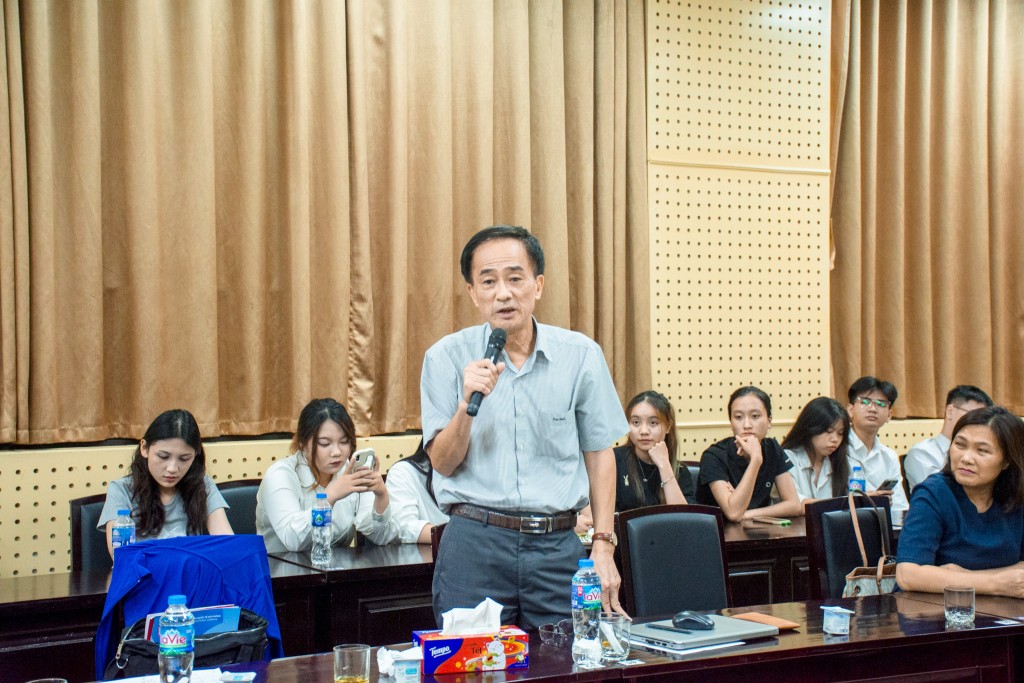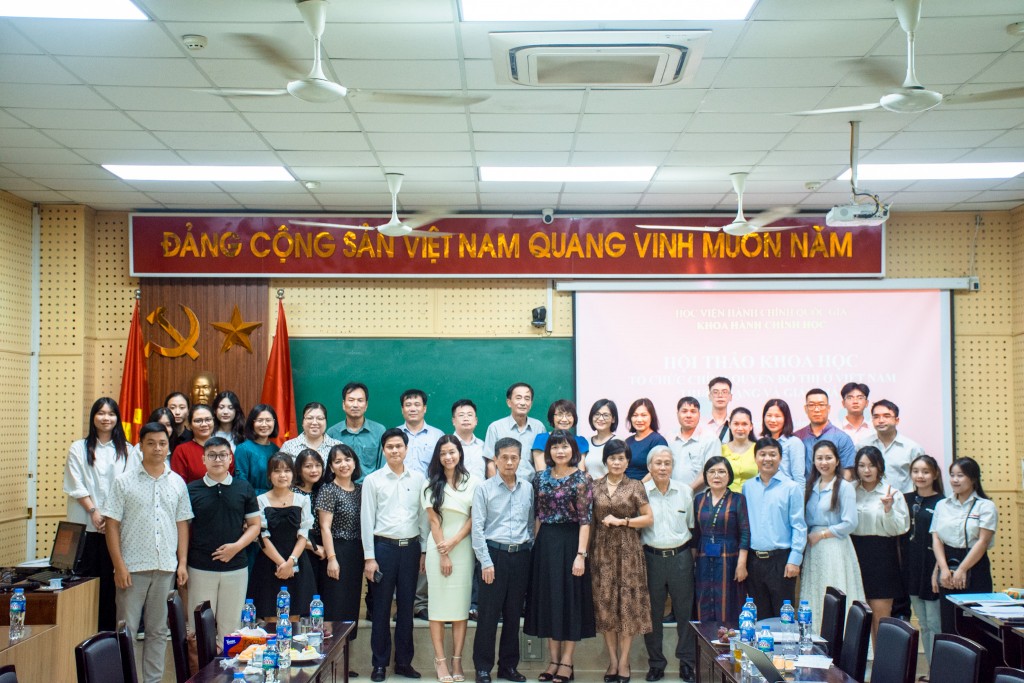On June 27, 2024, at NAPA Headquarters in Ha Noi, the Faculty of Administrative Sciences held a workshop with the theme: “Organization of Urban Government in Viet Nam: Current Situation and Solutions”. The workshop was chaired by Assoc. Prof. Dr. Nguyen Thi Hong Hai, Dean of the Faculty of Administrative Sciences.
Attending the workshop were Mr. Duong Viet Hung, Vice Chairman of the Vietnamese Fatherland Front of Tay Ho District; Mr. Nguyen Duc Hien, Deputy Director of the Board of Legal Affairs – People’s Council of Bac Tu Liem District; Ms. Nguyen Bich Thuy, Department of Local Government, Ministry of Home Affairs (MoHA); Prof. Dr. Pham Hong Thai, former Dean of the Faculty of Law, Vietnam National University (VNU), Ha Noi; and Dr. Nguyen Phuoc Tho, former Deputy Director General of the Department of Administrative Law, Office of the Government.
On the side of NAPA, there were Dr. Lai Duc Vuong, NAPA Vice President; Assoc. Prof. Dr. Vo Kim Son, former Dean of the Faculty of Organization and Personnel Management; Assoc. Prof. Dr. Nguyen Huu Hai, former Dean of the Faculty of Administrative Sciences; representatives of leadership, staff, and lecturers from various NAPA faculties, departments, and units, along with students from the Faculty of Administrative Sciences.
In her opening speech, Assoc. Prof. Dr. Nguyen Thi Hong Hai, Dean of the Faculty of Administrative Sciences, emphasized that building urban government is a major policy of the Party aimed at establishing strong government at all levels, better serving the needs and interests of the people, and achieving development goals. Faced with practical requirements, innovating the organizational model and operations of urban government, especially in terms of urban governance content and methods, as well as the organizational model and operational mechanisms of the urban government apparatus, in line with the characteristics and nature of urban areas, is a core issue that requires the attention and research of policymakers, practitioners, and scientists.
The workshop aims to gather feedback, discussions, and clarifications on the following topics: (1) Theoretical perspectives on the organization of urban government; (2) Practical experiences of urban government organization in Viet Nam; (3) Experiences of urban government organization in countries around the world and their implications for Viet Nam.
In his directive speech, Dr. Lai Duc Vuong expressed gratitude for the presence of the delegates, experts, and scholars who contributed papers and participated in the workshop. With 23 papers published in the workshop proceedings and the participation of numerous scholars, the interest in the topic of organizing urban government in Viet Nam today is evident. He acknowledged the meticulous preparation by the Faculty of Administrative Sciences and hoped that the scholars would clarify both theoretical and practical foundations and propose solutions for organizing urban government in Viet Nam, as well as learning from the experiences of other countries.
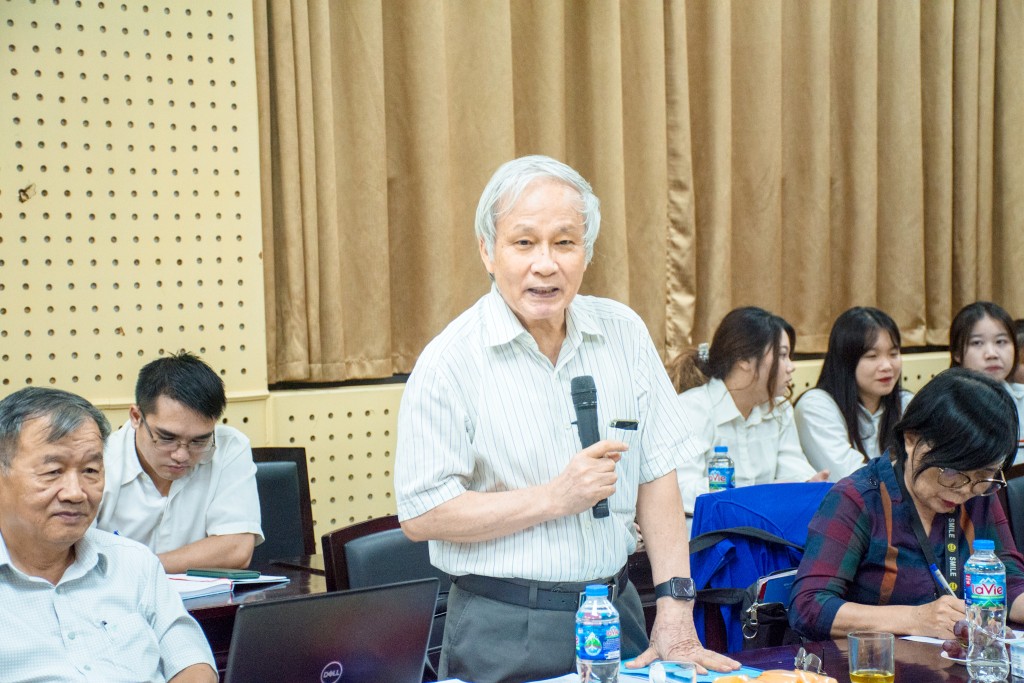
Assoc. Prof. Dr. Vo Kim Son, former Dean of the Faculty of Organization and Personnel Management, NAPA.
In his presentation titled “Restructuring or Reorganizing Local Government Towards Differentiating Rural and Urban Local Governments,” Assoc. Prof. Dr. Vo Kim son argued that it is necessary to distinguish between urban areas and cities for more effective local management. He also suggested that, under Vietnamese conditions, provinces should be categorized into two different levels of urbanization (though not absolute). Each province would have multiple urban areas, and the province would be responsible for planning and developing its urban regions.
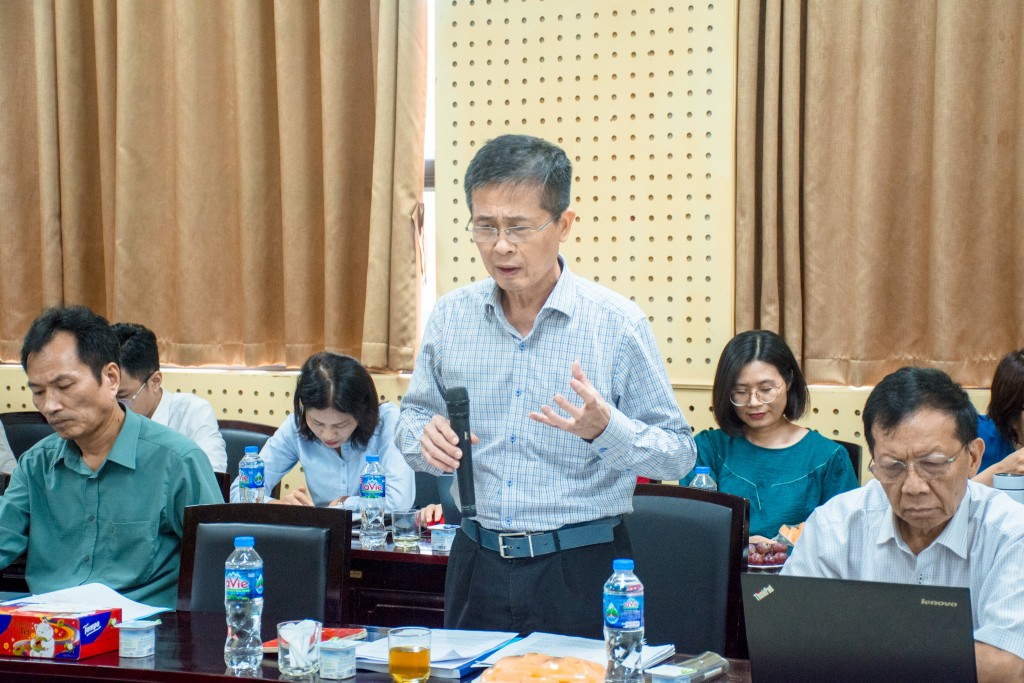
Dr. Nguyen Phuoc Tho, former Deputy Director General of the Department of Administrative Law, Office of the Government.
In his presentation titled “Legal Provisions on the Organization and Operation of Centrally-Run City Governments – Current Status and Some Issues,” Dr. Nguyen Phuoc Tho emphasized the need to continue innovating and perfecting the legal framework for the organization and operation of urban governments in centrally-run cities. He highlighted the following points: (1) Renewing perceptions; (2) Appropriately expanding urban development space; (3) Strongly transferring power to centrally-run city governments in managing and governing urban development; (4) Continuing to perfect the constitutional basis for modern urban government.
Sharing the topic “Organizing Autonomous Urban Government in Japan and Experiences for Viet Nam,” Assoc. Prof. Dr. Nguyen Huu Hai, based on the analysis of the urban system and organization of urban government in Japan, proposed several experiences for building an urban government model in Viet Nam. These suggestions aim to improve the quality and efficiency of state management, better serve the needs of the people, and meet the requirements for sustainable urban development and international integration, including: (1) Establishing autonomous urban governments, with the essence of empowering urban citizens as the goal, to be realized through concrete steps considering Viet Nam’s conditions; (2) Organizing the management of large urban areas should consider the model of a core city with centrally-run urban areas.
Presenting her paper “Some Issues in the Organization of Urban Government in Our Country Today,” Ms. Nguyen Bich Thuy noted that the current model of urban government organization in Viet Nam has certain limitations, especially regarding the organizational structure, operational methods of urban government, and the decentralization and transfer of power to urban governments. She also proposed several solutions for the organization of urban government in Viet Nam in the coming time, such as: (1) Perfecting the institutional framework for the urban government model and clearly identifying the suitable urban government model for each type of urban area. In this regard, the determination of which intermediate level to eliminate should be based on the scale and characteristics of each urban area to propose an appropriate urban government model; (2) Concentrating power in the hands of the urban heads and increasing accountability; (3) Establishing specific regulations on decentralization and delegation of authority between the central government and urban government (city), and between the urban government and other components within the urban area; (4) Decentralization and transfer of power to urban governments being accompanied by the establishment of mechanisms to control power within the urban government.
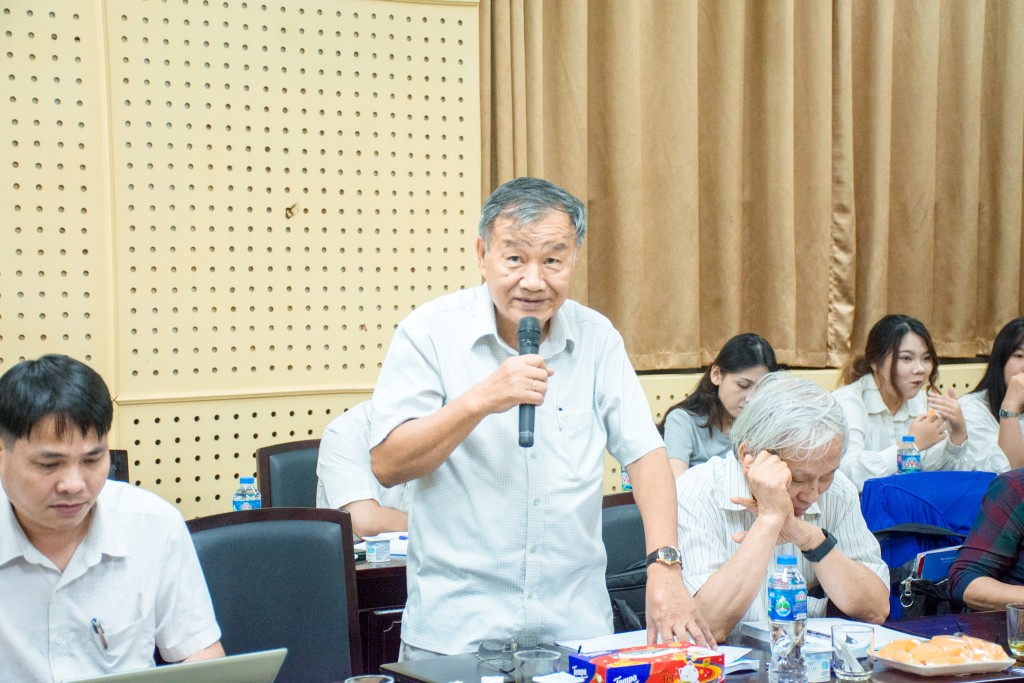
Prof. Dr. Pham Hong Thai, former Dean of the Faculty of Law, Vietnam National University (VNU), Ha Noi.
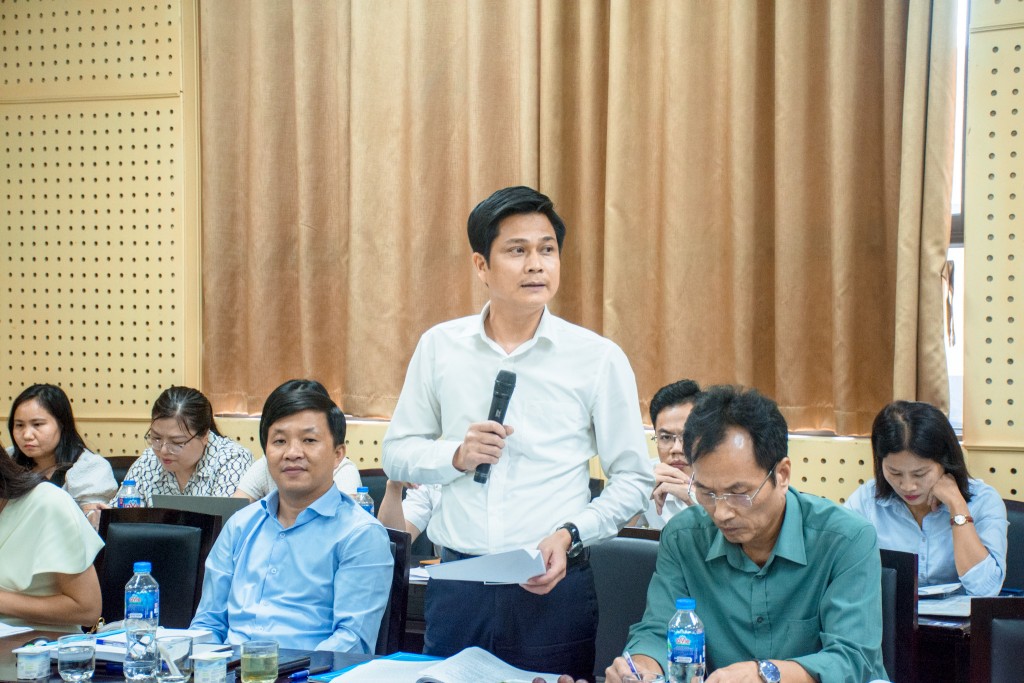
Mr. Nguyen Duc Hien, Deputy Director of the Board of Legal Affairs – People’s Council of Bac Tu Liem District.
The workshop also received opinions of delegates, experts, and scholars on the organization of urban government in connection with the local context. The discussions focused on several topics, including: (1) Implementing a pilot model of urban government in Ha Noi (based on the practice in Bac Tu Liem District); (2) The monitoring activities of the Vietnamese Fatherland Front under the conditions of the urban government pilot model (based on the practice in Tay Ho District); (3) Legal regulations on the organization and activities of centrally-run cities; (4) Achievements and limitations in implementing the urban government model in Ho Chi Minh City.
Concluding the workshop, Assoc. Prof. Dr. Nguyen Thi Hong Hai thanked the experts and scholars both within and outside NAPA for their contributions. These valuable insights and experiences will be seriously considered by the workshop’s organizing committee for further research, and to propose solutions and recommendations to better serve teaching, academic research, and the training of public officials for lecturers of the Faculty of Administrative Sciences in particular, and NAPA in general.


